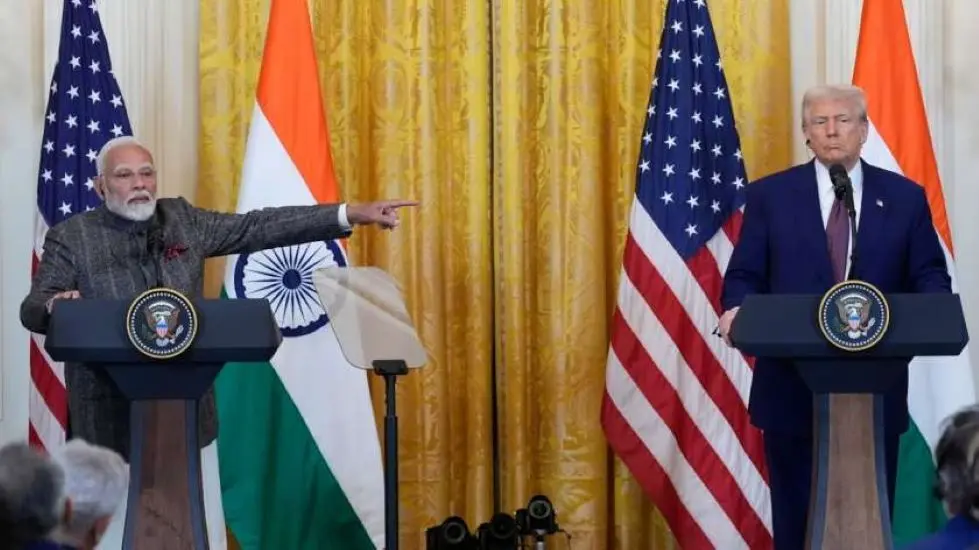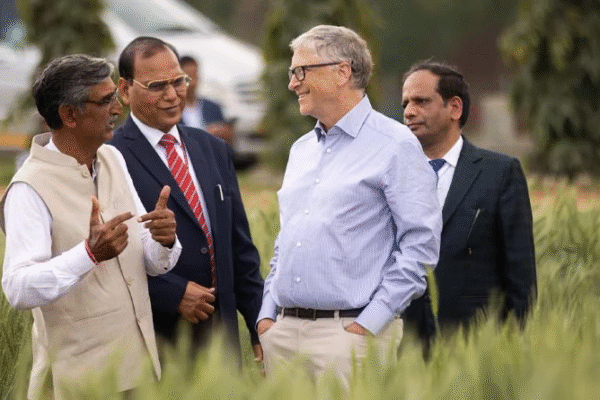

India-US Trade Deal: Trump’s Statement and the Risk of Tariff Measures Like Indonesia
Trump Reignites India-US Trade Deal Talks, Signals Warning Through Indonesia Tariffs
U.S. President Donald Trump has once again stirred discussions around a potential India-U.S. trade deal, stating that a major agreement with India could happen soon. However, his decision to impose a steep 19% tariff on Indonesian imports has sent a cautionary signal for India.
Harsh Tariffs on Indonesia — A Warning Sign for India?
The Trump administration has imposed a 19% tariff on various products imported from Indonesia, even though the U.S. provides Indonesia with duty-free access. Citing what he called “unfair trade practices,” Trump took strict action. This has raised concerns that similar terms could be imposed on India, potentially dealing a heavy blow to Indian exports.
Trump explained that under the U.S.-Indonesia trade framework, the U.S. will have full access to Asian markets without paying any duties, while Indonesia will be subject to a 19% tariff. If India is offered a similar deal, it may face challenging conditions that could impact its trade competitiveness.
Trump Talks Up Indonesia Trade Deal, Hints India Could Face Similar Terms — Rising Concerns in Delhi
U.S. President Donald Trump has announced the successful completion of a trade agreement with Indonesia, signaling that similar terms may be proposed to India. Speaking to reporters, Trump said, “We’ve made a deal with Indonesia. I spoke to their president… and we finalized the agreement. We now have full access to Indonesia — to everything. As you know, Indonesia is strong in copper, but now we have access to all sectors. We won’t be paying tariffs. They’re giving us access we never had before. That might be the biggest part of this deal.”
Trump further mentioned that discussions with India are “basically moving in the same direction.” He told reporters, “We’ll have access to India as well. You have to understand — we never had access to these countries before. Our people couldn’t enter these markets, but now, because of what we’re doing with tariffs, we are gaining that access.”
What If India Gets an Indonesia-Style Deal?
Trump’s aggressive trade stance has raised alarm bells in India. If the U.S. imposes Indonesia-style tariffs—like the 19% duty recently levied on Indonesian imports—it could severely impact Indian exports. Sectors like IT, pharmaceuticals, and handicrafts could face major setbacks, especially as both countries have already had tensions over issues like price caps on medical devices, digital taxation, and agricultural access.
India Weighs Its Next Move
Experts believe India will adopt a cautious and diplomatic approach. While the Commerce Ministry has not made an official statement, sources suggest the Indian government is working toward a balanced trade agreement with the U.S. to avoid any tariff shock.
However, if the Trump administration follows through with steep tariffs, it could spark a mini trade war, potentially harming both economies. The key question now: Can India and the U.S. reach common ground?
NATO Chief Issues Stark Warning to India, China, and Brazil
Meanwhile, NATO Secretary General Mark Rutte issued a strong warning to India, China, and Brazil regarding their continued trade with Russia. Following a meeting with U.S. Senators on Wednesday, Rutte urged the leaders of Beijing, New Delhi, and Brasília to pressure Russian President Vladimir Putin to take peace talks seriously.
He said, “If you are the president of China, the prime minister of India, or the president of Brazil — and you continue to trade with Russia and buy their oil and gas — know this: if the man sitting in Moscow doesn’t take peace talks seriously, I will impose 100% secondary sanctions.”
This sharp message adds further pressure on India as it navigates an increasingly complex global trade and geopolitical environment.
Rutte also called on the leaders of all three countries to directly urge Vladimir Putin to engage seriously in peace talks. He said, “So please, pick up the phone and call Vladimir Putin. Tell him he must take peace negotiations seriously, or else the consequences will be far-reaching for Brazil, India, and China.”

NewsHasghag operates a 24/7 news bureau that tracks the real-time, social media-driven stories from India and around the world, keeping you ahead of the day’s key talking points. Our digital-first approach transforms storytelling through the seamless integration of data, interactive charts, video, and audio into every narrative









